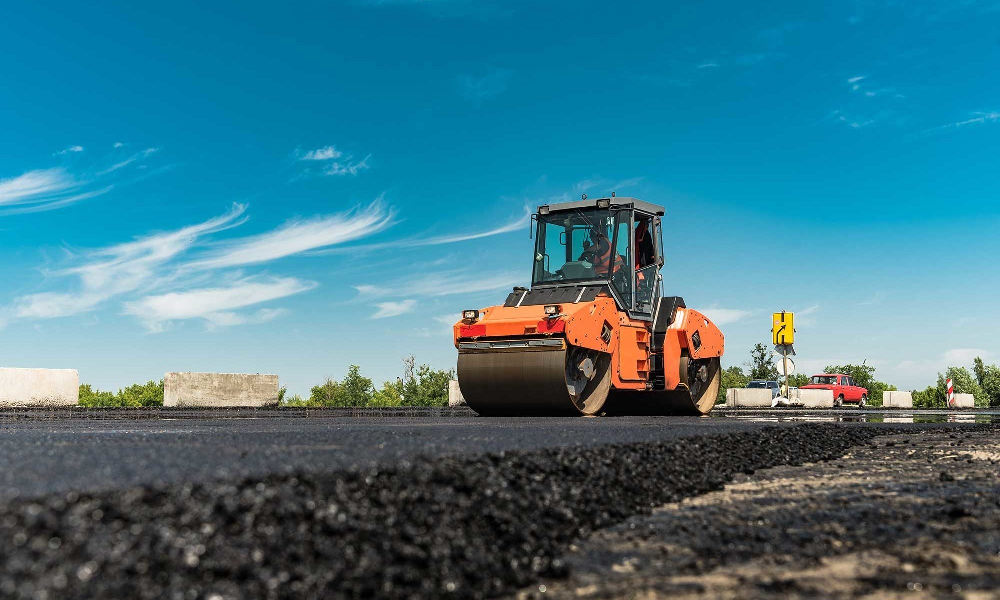When it comes to constructing durable and long-lasting roads, the importance of using the right tools cannot be overstated. Among the array of equipment required for asphalt paving, specific tools play pivotal roles in ensuring the smoothness, durability, and overall quality of the finished surface. In this comprehensive guide, we delve into the world of asphalt tools, covering their functionalities, types, and significance in road construction.
Asphalt Rakes: Shaping the Foundation
Asphalt rakes are indispensable tools for spreading and leveling hot asphalt mixtures during the paving process. These rakes come in various sizes and shapes, allowing workers to manipulate the asphalt efficiently to achieve the desired thickness and contour. Featuring sturdy handles and durable heads, asphalt rakes enable workers to shape the foundation with precision, ensuring uniformity and proper compaction.
Asphalt Lutes: Smoothing the Surface
Once the asphalt mixture is spread across the surface, asphalt lutes come into play to achieve a smooth and even finish. These long-handled tools feature flat and wide heads, ideal for pushing and pulling the hot asphalt to eliminate irregularities and achieve optimal compaction. Asphalt lutes are essential for maintaining consistency across the pavement, resulting in a seamless surface that enhances both aesthetics and functionality.
Asphalt Rollers: Compacting for Durability
Compaction is a critical phase in asphalt paving, and asphalt rollers are the primary equipment used to achieve proper compaction levels. These heavy machines feature large drums that exert pressure on the asphalt surface, eliminating air voids and ensuring maximum density. Proper compaction not only enhances the structural integrity of the pavement but also enhances resistance to cracking and deformation, prolonging the lifespan of the road.
Asphalt Tampers: Precision and Stability
In areas where asphalt rollers cannot reach, asphalt tampers are deployed to provide precision compaction and stability. These handheld tools feature flat metal plates attached to long handles, allowing workers to compact asphalt in tight spaces and along edges. Asphalt tampers are particularly useful for achieving uniform compaction around obstacles such as utility poles and drainage structures, ensuring a seamless integration of the pavement with the surrounding environment.
Asphalt Edgers: Defining the Boundaries
To achieve clean and well-defined edges along the pavement, asphalt edgers are utilized to trim excess asphalt and create smooth transitions between the road surface and adjacent structures. These handheld tools feature sharp blades or wheels that enable workers to precisely trim the asphalt along curbs, gutters, and other vertical surfaces. Proper edging not only enhances the visual appeal of the road but also facilitates drainage and prevents crumbling at the edges.
Asphalt Brushes: Finishing Touches
Once the asphalt pavement is laid and compacted, asphalt brushes are employed to apply a final coat of sealant or tack coat, enhancing the durability and weather resistance of the surface. These brushes feature stiff bristles attached to long handles, allowing workers to evenly distribute the sealant across the pavement. Additionally, asphalt brushes are used for removing debris and excess material from the surface, ensuring a clean and polished finish.
Incorporating Chemical Pumps for Efficiency
In addition to the essential asphalt tools mentioned above, the integration of chemical pumps further enhances the efficiency and effectiveness of road construction projects. Chemical pumps are utilized for accurately dispensing asphalt emulsions, sealants, and other chemical additives, ensuring precise application and optimal performance. By automating the process of chemical distribution, these pumps streamline operations, minimize waste, and contribute to the overall quality of the finished pavement.
Conclusion
In the realm of road construction, the use of appropriate asphalt tools is paramount for achieving superior results in terms of durability, smoothness, and overall quality. From shaping the foundation to applying the finishing touches, each tool plays a crucial role in the paving process. By leveraging the right combination of tools and equipment, construction professionals can ensure the longevity and functionality of asphalt pavements, thereby contributing to safer and more resilient transportation infrastructure.
With a meticulous approach to tool selection and utilization, coupled with the integration of advanced equipment such as chemical pumps, road construction projects can meet and exceed industry standards, paving the way for smoother and more sustainable transportation networks.

